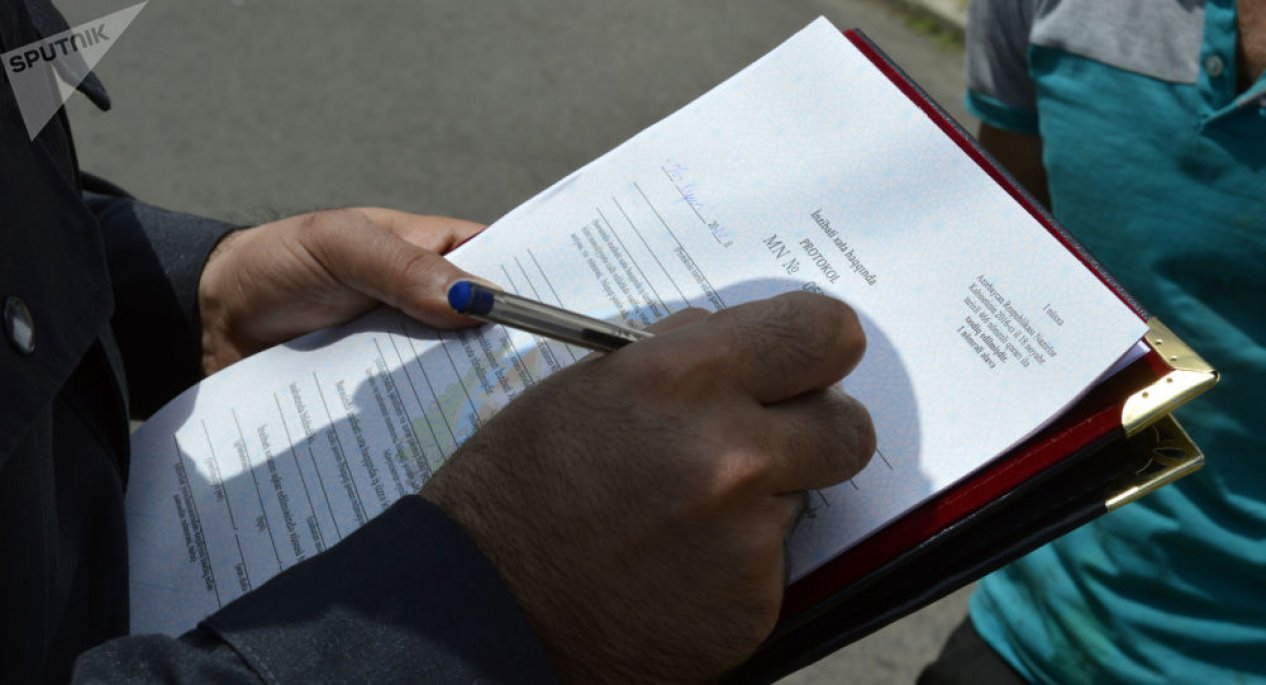
Azerbaijani actor Emil Musayev said that the police drew up an administrative protocol without his participation. Speaking to Qafqazinfo, the actor said that he had been warned by police for not wearing a medical mask. However, they didn’t say that a protocol would be drawn up. Recently, he learned that a protocol worth 200 manat had been drawn up. The actor considers it illegal to draw up an administrative protocol without his participation. Emil Musayev also noted that the statement ‘refused to sign’ was incorrect because the protocol was not presented to him.

Commenting on the actor’s complaint, Interior Ministry spokesman Elshad Hajiyev said that an administrative protocol may be drawn up against a citizen without his or her participation. “In all cases, an electronic administrative protocol can be drawn up. There is no violation of the law in any form.”

According to Article 211.2 of the Code of Administrative Offenses of the Republic of Azerbaijan (violation of the anti-epidemic regime, sanitary-hygienic and quarantine regimes), violation of the requirements, as well as failure to prevent violation of these requirements by officials and legal entities shall be punishable by the relevant executive authority by a fine of 100 manat for individuals, 300 manat for officials and 600 manat for legal entities.
Article 211.3 of the Code states that individuals shall be fined 200 manat and officials shall be fined 600 manat for repeated violation of Article 211.2 of the document within one year from the date of entry into force of the decision to impose an administrative penalty. Legal entities shall be fined in the amount of 1,200 manat.

As for the procedure for drawing up a protocol on administrative offenses, this is clearly stated in the Code of Administrative Offenses. According to Article 100 of the Code (Protocol on Administrative Offenses), this rule must be followed when compiling a protocol on administrative offenses, and the conditions reflected herein must be included in the protocol. Let’s look at some of them.
- date and place of drawing up the protocol;
- position, last name, name, patronymic of the person who drew up the protocol;
- information on the person in respect of whom the administrative violation case is being processed, including the citizen’s personal identification number;
- place, time and essence of the administrative offense;
Besides, the following is also included in the protocol:
- explanations of the representative of the physical person or legal entity in respect of whom the administrative violation case is being conducted;
- when compiling the protocol, the rights and responsibilities provided for in this Code shall be explained to the physical person or representative of the legal entity in respect of whom the administrative offense proceedings are being conducted, as well as to other participants in the administrative offense proceedings and a relevant note shall be made.

- A copy of the protocol on administrative violation shall be given to the physical person or representative of the legal entity in respect of whom the administrative violation case is being conducted. The victim in the administrative violation case also has the right to receive a copy of the administrative violation protocol.
- The protocol shall be signed by the person who drew it up, the physical person or the representative of the legal entity in respect of whom the administrative violation case is being conducted. If a physical person or a representative of a legal entity in respect of whom an administrative violation case is being refused refuses to sign the protocol, a relevant note shall be made in the protocol.
By the way, the relevant article of the Code of Administrative Offenses (Article 57. Official submission of documents on administrative offenses) also allows to deliver the protocol on administrative offenses to a citizen by various means, by mail and SMS.

Conclusion from the legislation: Although the relevant article of the Code of Administrative Offenses doesn’t contain the phrase “an administrative protocol may be drawn up against a citizen without his or her participation”, this doesn’t mean that the protocol won’t be drawn up. Even if a citizen refuses to sign the protocol, the protocol is not annulled, but in all cases the protocol is drawn up with a note of refusal. It is clear from the statement of the Interior Ministry that in these cases, police officers not only warn citizens, but also comply with the requirements of Part 2 of Article 211 for violation of sanitary-epidemiological and special quarantine rules.




















